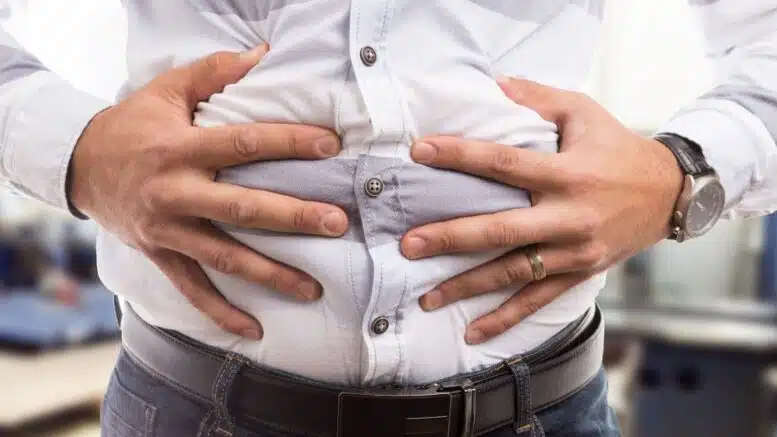Stomach bloating is when your stomach inflates because of accumulated gas and fluid. This causes discomfort, sometimes pain, and the inability to pass gas. Abdominal bloating is a minor concern that may be caused by eating too many fruits and vegetables, overeating, and even stress. But, in rare instances, bloating can only be a symptom of a more severe problem requiring a thorough medical examination.
Several remedies can help you pass gas better and reduce bloating. Knowing what to do when you experience bloating makes a difference in going about your day or taking it easy.
You can easily treat this uncomfortable feeling with remedies like these below.
Take The Right Supplements Or Cleansing Beverages
Nowadays, there are digestive supplements in packets, sachets of gels, or powdered drinks that promise a good to cleanse. These are good options if you must pass gas or let some food out of your system.
Supplements like Isagenix Packs are more accessible and can be bought over the counter. The only precaution is to be confident of the brand you’re buying from so you’re not skimping on the effects and quality. But, regardless of brand, remember not to be overly dependent on food supplements because these are not food substitutes.
If you frequently feel bloated, changing your diet and eating habits is the best course of action. But when you’re out and about and need that immediate effect, those cleansing packets are a big help.

Limit Food That Triggers Bloating
One of the most common culprits of bloating is food. Food that contains poorly digestible or non-digestible compounds—like fructose, insoluble and soluble fiber, raffinose, and sugar alcohol—can cause bloating. When you consume high quantities of that food, the undigested sugar and fiber wind up in your large intestine. There, bacteria ferment the undigested sugar and fiber, increasing gas.
Some examples include:
- Soda and other carbonated or fizzy beverages
- Vegetables like cabbage, broccoli, and Brussels sprouts
- Artificial sweeteners like mannitol found in sugar-free chewing gum
- Fruits like peaches, prunes, and pears
- Legumes like beans, peas, and lentils
You don’t have to let go of that food completely, as there are also healthy occasionally. Hence, it’s best to control your intake or space it out to prevent bloating.
Slow Down When Eating
With a busy daily schedule, eating fast is the norm. While you’re still getting full, you may not necessarily be satiating your taste buds. Hence, eating slowly, tasting every flavor, and appreciating every meal is ideal.
And, if that’s not reason enough to slow down, eating fast also increases the air you swallow. When it traps in the air, the stomach swells, sometimes passing through to your intestines.
Moreover, eating quickly allows you to take in too much food unconsciously. This is because it can take as much as half an hour for your stomach to tell your brain that you’re full. This buys you a lot of time to overeat, where it’s only when you already feel bloated that you know you’re already full.
Exercise Regularly
Have you been sitting the whole day? Perhaps it’s time for you to take a break and go for a walk. Regular exercise or physical activity helps your bowel movement stay regular, reducing the likelihood of bloating. The more you move, the better you can release excess stool and gas, especially if you know you’re feeling bloated because of constipation.
If you’re not the high-intensity type, you can try yoga. Yoga poses like the child’s pose, squats, and happy baby pose can help relieve gas buildup. When you study and learn those poses, you’ll find that they position the muscles to release excess gas from the gastrointestinal tract. In effect, flatulence or bloating is also reduced.
Increase Your Water Intake
Staying hydrated is one of the best ways to beat bloating. There’s that mistaken thinking that because your stomach already feels like exploding, the last thing you’d want is to overload it with water. But the opposite is true. Hydration is a crucial factor in reducing bloating, with convincing scientific reasons why.
Most of the human body is water, so it’s natural to need water to function well. With enough water, everything moves smoothly through your digestive tract and out. You’ll find that the more hydrated you are, the more bowel movements are regular.
Likewise, drinking water is an effective way to offset sodium intake through food, given how high sodium content also results in bloating. By staying hydrated, you can flush out excess sodium, reducing bloating.
In Conclusion
Occasional gas, abdominal discomfort, and bloating aren’t severe problems. Everyone’s bound to experience this once in a while. Fortunately, there are easy remedies like those listed above. You can try over-the-counter medicines, food supplements in packets, or change your lifestyle or diet.
If, despite the usual courses of action you take, bloating still doesn’t subside or the frequency and severity increase, seek medical attention immediately. The suggestions above aren’t meant to substitute sound medical advice from a doctor. Never self-medicate; give your trusted physician a ring when in doubt.
